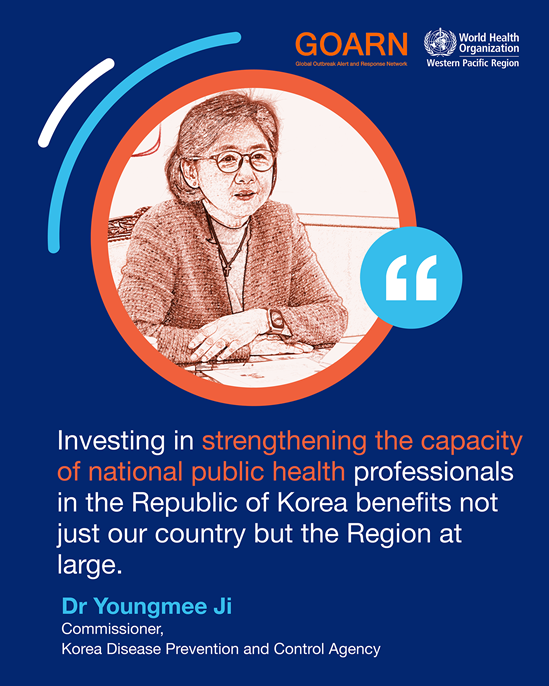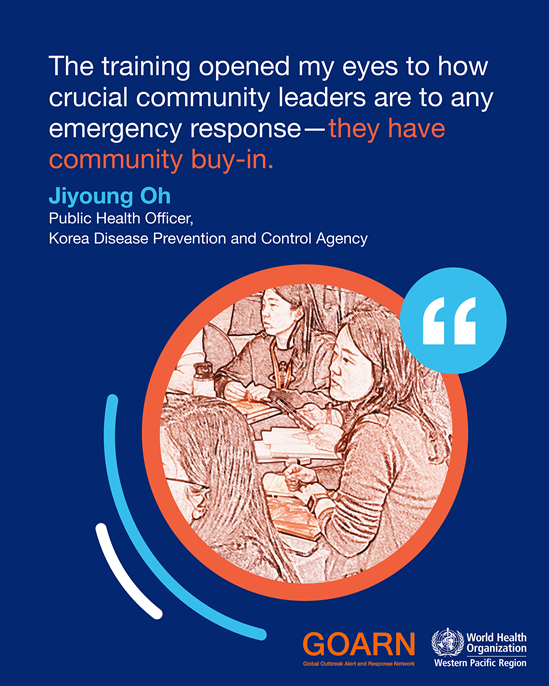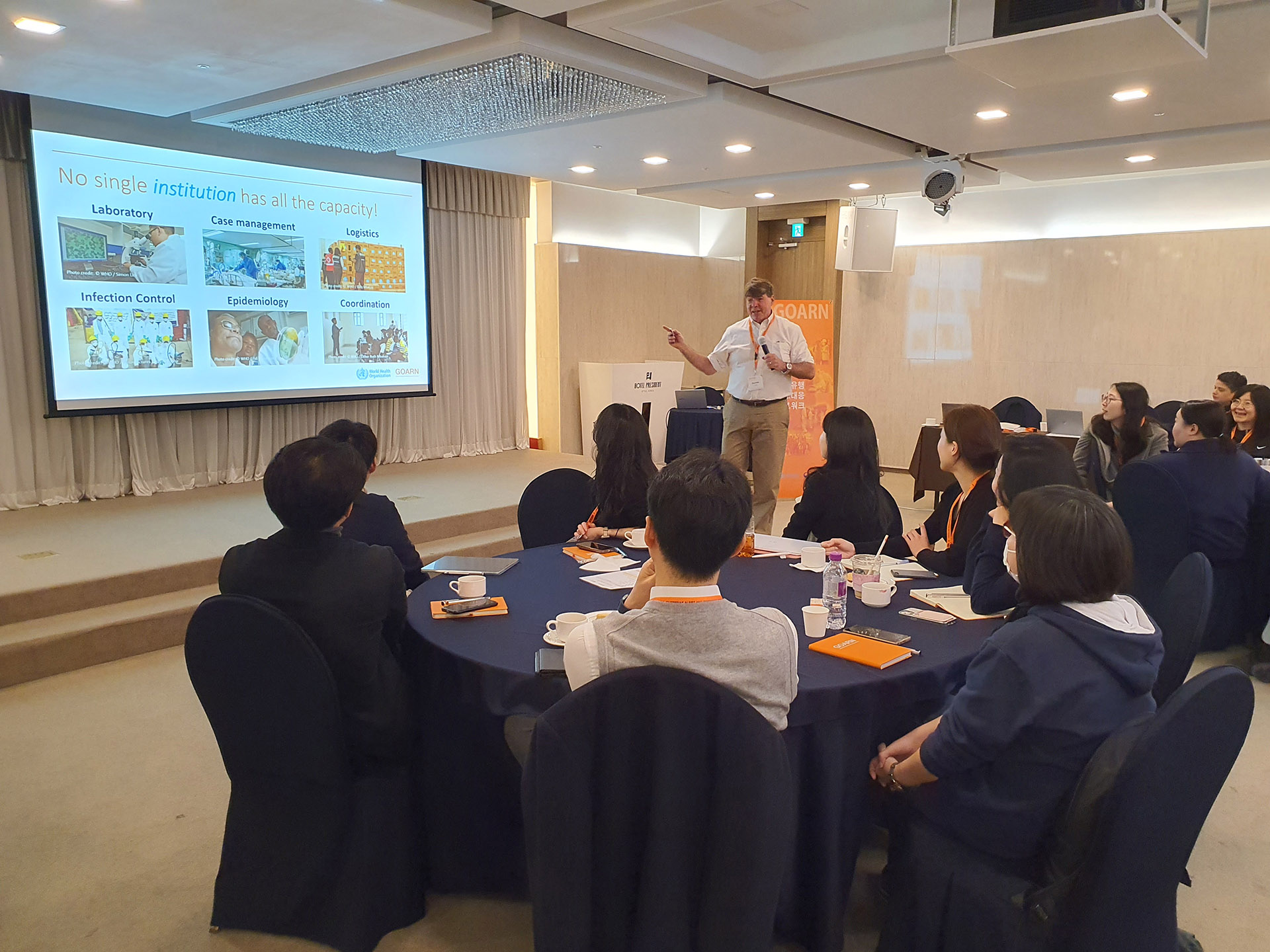The Republic of Korea is intensifying its efforts in public health preparedness by strengthening its team of trained national public health experts to tackle infectious disease outbreaks, both at home and abroad. In a significant move, the Korea Disease Control and Prevention Agency (KDCA) partnered with the Global Outbreak Alert & Response Network (GOARN) to conduct specialized training for 33 public health professionals from KDCA and the Republic of Korea’s National Medical Center (NMC).
GOARN is a global technical partnership established by the World Health Organization (WHO) that plays a pivotal role in preparing public health responders for international emergencies. During the inauguration of the training activity, which took place on 19 March 2024 in Seoul, the Commissioner of KDCA, Dr Youngmee Ji, emphasized the critical importance of this partnership: “KDCA’s vision of a safer and healthier future aligns with WHO’s goal of advancing health security in the Region. Investing in strengthening the capacity of national public health professionals in the Republic of Korea benefits not just our country but the Region at large,” she stated. This initiative underscores KDCA’s commitment to building a robust national roster of experts capable of rapid deployment in response to diverse disease outbreaks and emergency situations.

Training for the future
The GOARN training proved to be an eye-opener for participants like Jiyoung Oh, a public health officer with KDCA’s Division of Risk Assessment. “The training opened my eyes to how crucial community leaders are to any emergency response − they have community buy-in. In previous national-level deployments, I focused on working with other public health experts and the Government. We did not take full advantage of the community leaders in response efforts,” Jiyoung shared. Having been involved in the national responses to COVID-19 and mpox outbreaks, she added, “When I’m deployed again, I will use what I’ve gained from the training to be more effective.”

GOARN training programme
GOARN’s capacity-building and training programme is multi-tiered, focusing on essential field skills such as effective communication, teamwork and leadership. This training ensures that responders are well equipped to handle outbreak responses in various settings.
The programme starts with Tier 1, a self-directed e-course introducing public health experts to emergency response essentials. This is followed by a more advanced one- to two-day classroom-based training (Tier 1.5) that covers the practical aspects of working on an international outbreak response team. Part of this training also includes testimonials from former GOARN deployees sharing their personal experiences in the field. These help participants to better contextualize their own realities and to motivate them to consider deploying through GOARN.
Paul Effler, a training facilitator from the University of Western Australia − a GOARN partner − highlighted the importance of building confidence among participants. “The single biggest hurdle in getting involved in international outbreak response is having the confidence to put your hand up, especially that first time when you are unsure of what it takes and what will be expected of you. This training builds that confidence. Our participants come through the training believing that they have what it takes to make a difference during an emergency response.”

Professor Paul Effler from the University of Western Australia, a GOARN partner.
From Tier 1.5, the GOARN training programme progresses to more in-depth training activities, including a five-and-a-half-day scenario-driven simulation exercise (Tier 2) and advanced public health leadership and crisis management training (Tier 3). These comprehensive programmes ensure that public health professionals can adapt their specialized skills to various field settings, enhancing their ability to contribute effectively to outbreak responses both within their own countries and globally.
Through this partnership with GOARN, the Republic of Korea is not only strengthening its national health emergency workforce but also contributing to a more resilient global health community.
For more information about GOARN, visit the GOARN web page and the GOARN Knowledge Platform.




